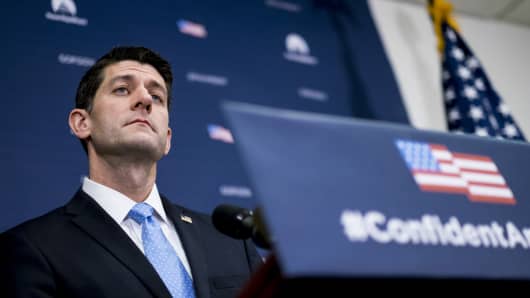Almost immediately after taking the gavel, Speaker of the House Paul Ryan announced he will make tax reform—often considered a noble cause but a futile exercise —a priority in the upcoming year.
"Instead of a tax code that all of us can live by, we have a tax code that none of us can understand," he said last month, speaking at the Library of Congress. "The only way to fix our broken tax code is to simplify, simplify, simplify. Close all those loopholes and use that money to cut tax rates for everyone."





